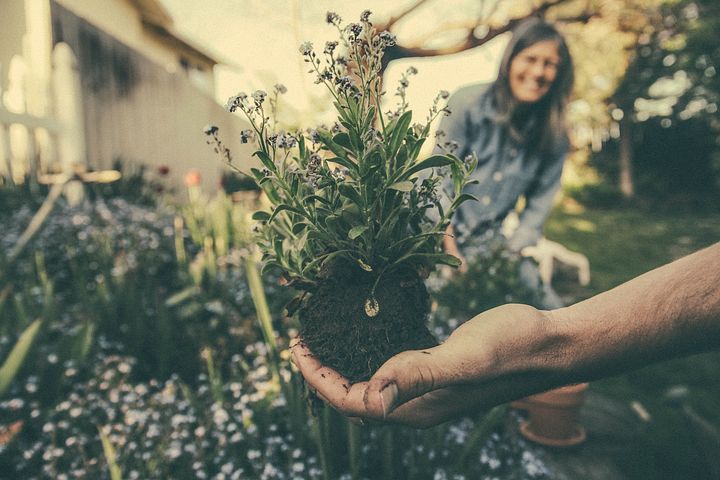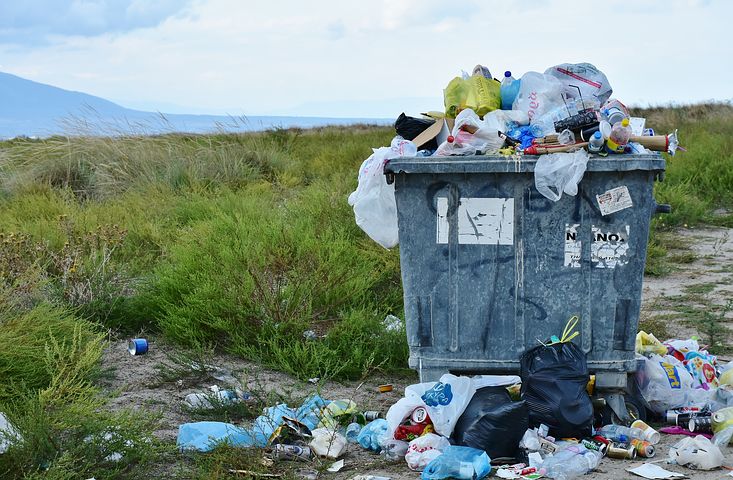Sustainable gardening. Sounds weird, right? Gardening that is harmful to nature does not seem to ring true. Real talk though, it’s certain gardening practices, not the plants and trees, that are detrimental to the environment and pose a threat to human lives. Sustainability minimizes the impact of human activities by incorporating both materials and practices that have a smaller carbon footprint or utilize recyclables. These ideas have immediate and long-term rewards and make it possible to live on a greener, healthier planet Earth.

Sustainability is both the materials and actions employed. Using certain products that contain CFCs or those that are not recyclable or reusable is going to do more harm than good. Inefficient watering or using chemicals will not just stress your wallet but also cause distress to nature. These practices will either contribute to global warming or to an increase of solid waste. Each simple good or practice you take or do daily, just like gardening, has a long-term impact, either bad or good, to nature and back to human lives.
There is so much you can do to beautify your front lawn and backyard, and at the same time help the environment be in good health. Here are several essential practices you can implement in your day-to-day gardening pastime.
Water Control
As much as possible, conserve water by limiting usage from drilled or private sources, and instead collecting water from alternative sources. It is also imperative to control the use of water especially for areas that do not have an abundant supply of this resource.
How do you restrict usage? First, water less. Different types of plants call for different watering. Some may need to be watered daily whiles others may not. Know how many times in a week you should keep your plants wet. Also, consider the quality of water you provide to your plants. Tap water may contain unsafe chemicals that lead to hindered growth. Thus, it may impact your garden’s yield in the long term. Consider using filtered water on your plants, which is a more cost-effective and sustainable option.
Second is efficient watering. You can start watering the highest parts of the garden to the lowest. With this, the water runs off directly to low plants which may need lesser or no additional water at all. Another efficient watering method is to implement drip irrigation, a system that directly applies water to the soil. This system has an efficiency of more than 90% compared to other solutions like a sprinkler system.
Third, you can collect rainwater. Other than the set-up costs, rainwater offers you an environment-friendly source of watering without even using your private sources.
Native Plants
The type of plants you want to flourish in your area affects sustainable gardening, from water and energy consumption to the use of chemicals and fertilizers. While you may want to see a variety of flowers blooming in abundance and trees providing abundant shade, certain flowers or shrubs may not be adapted to the soil type and climate in your area. This then requires extensive maintenance which may mean fertilizers, more watering and other necessary steps.
You can avoid these if you are using native plants. Plants that are native to your area are already adapted to the soil and climate conditions that may be specific to your area. This means they still grow even with minimal maintenance. You may also want to check on certain plants that can grow with little water, especially during drought or dry seasons with little rain. These and your native plants, surely, are high-yielding without the supplements, additives and extra effort as well.
Composting
You do not actually need to bring in harmful chemicals to fertilize your flowers or shrubs. You can create your own fertilizer without dishing out for a hefty sum and contributing more damage to nature. Composting is one of the most effective and organic solutions to a beautiful garden. Turning your leftovers, dried leaves, wilted plants and other biodegradable goods into a compost pile can increase your soil’s fertility, making it nutrient-rich and less dependent on inorganic fertilizers.
Edible Gardening
You do not need to go to the grocery or the supermarket to get a basket of fresh fruits, herbs or vegetables. You can make use of your yard by converting an area into an edible garden, and start harvesting organic food that is free, fresh and just one pick away. Growing your own food doesn’t just save you money but also makes you less dependent on third-party suppliers. Nobody said it was easy, even for sustainable gardening. But if you start taking the first step, you’d be happy to know and feel that you’ve done a good thing not just for the environment but, equally important, for yourself and your family.





Leave a Comment